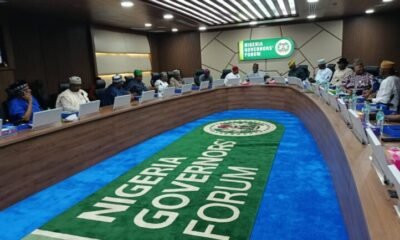Brands and Marketing
Food Importation Increased By 80% In Four Years – FG
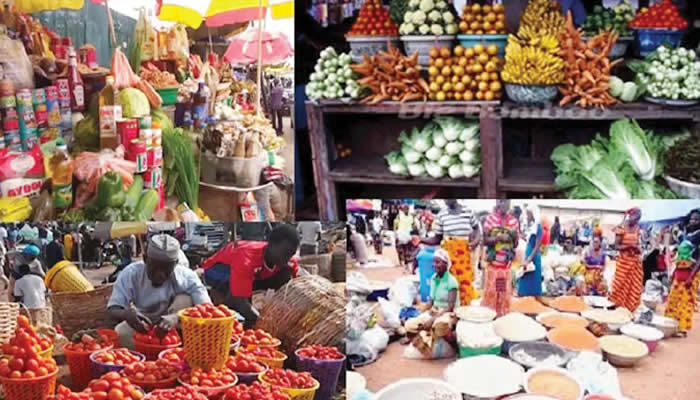
Food Importation Increased By 80% In Four Years – FG
According to the Federal Government, a significant number of Nigerians, specifically 88.5 million, currently face inadequate access to food, and this number is projected to increase by six million by December 2023.
Surprisingly, despite various agricultural intervention programs implemented by successive governments to enhance food sufficiency in the country, there has been an 80 percent rise in food imports between 2019 and 2023.
Kingsley Uzoma, the Senior Special Assistant to the President on Agribusinesses and Productivity Enhancement, highlighted these distressing statistics during the National Policy Dialogue in Abuja.
The dialogue, titled “Deepening Partnership for Scaling-Up of Information and Communication Technology for Development for Smallholder Farmers in Nigeria,” was organized by the federal government, the International Fund for Agricultural Development, and the National Information and Technology Development Agency.
Uzoma emphasized that the government is dedicated to reversing this trend.
He also pointed out that Nigeria currently holds the highest global rate of stunted children, with 70 percent of its population living below the poverty line.
Furthermore, in October, the country experienced a significant food inflation rate of 31.52 percent.
He said, “This escalating dependence on external sources further intensifies the challenges within the domestic food landscape all of which have resulted in the declaration of a state of emergency in food security by Mr President.
“The IFAD-financed programme such as Value Chain Development Programme and Livelihood Improvement and Family Enterprises Project for the Niger Delta, aims to enhance incomes and food security through sustainable practices and integration of ICT4D.
“These programmes involve tools such as the Mini-weather Station and Agriculture Market Information System to benefit farmers.
“However, challenges in data access, gender equality, infrastructure and technical support still exist,” he said.
The presidential aide also acknowledged that the decline in agricultural production was a major contributor as the country was being forced to rely heavily on food imports.
To address these challenges, Uzoma urged the continuous promotion of digital literacy and collaboration between agencies and the private sector.
These efforts are crucial in facilitating the adoption of technology among smallholder farmers, ultimately leading to increased productivity, technological advancements, the implementation of best practices, improved trade competitiveness, and enhanced market access.
“Increased collaboration with the Federal Ministry of Agriculture and Food Security and the NITDA is necessary to implement the National Digital Agriculture Strategy to further leverage technology for the advancement of the agricultural sector.
“These aligned with the mandate of my office under the leadership of the vice president which encompasses a multifaceted approach rooted in technology and innovation to ensure transformative change in Nigeria’s agricultural sector.
“This includes empowering one million women, youths and minorities to achieve food and nutritional sovereignty, ensuring food security and heightened agricultural productivity,” Uzoma stated.
-

 Crime1 week ago
Crime1 week agoBREAKING: Nigerian Man Arrested in U.S. Over Massive Fraud Scheme Targeting Veterans’ Health Organization(PHOTO)
-
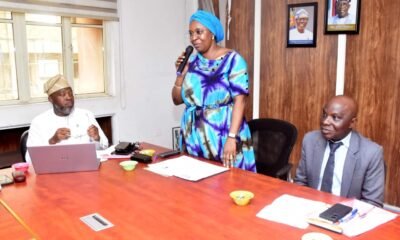
 Education1 week ago
Education1 week agoBREAKING: Lagos Launches Bold Move to Control Private and Mission Schools – New Policy to Shake Up Education Sector
-
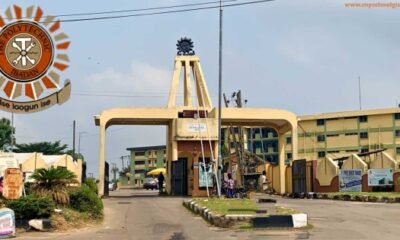
 Education1 week ago
Education1 week agoOutrage in Ibadan: Students, Alumni Kick Against Renaming of Ibadan Polytechnic After Late Governor Olunloyo
-

 Headline1 week ago
Headline1 week agoTinubu Reunites Wike, Fubara, Rivers Lawmakers (PHOTOS)
-

 News1 week ago
News1 week agoRuud van Nistelrooy SACKED After Leicester’s Premier League Collapse
-

 Headline1 week ago
Headline1 week agoTRF: Super Falcons Goalie Nnadozie Seals Move To Brighton
-

 Headline1 week ago
Headline1 week agoTinubu’s Bold Tax Overhaul Gets ICAN’s Nod — “This Will Help Millions”
-
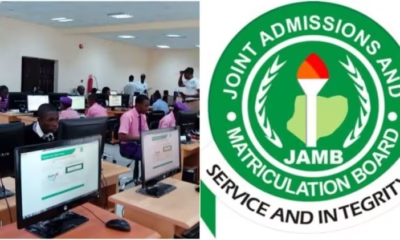
 Education1 week ago
Education1 week agoJAMB EXPOSED Them! Over 80% Skip Mop-Up Exam Amid Cheat Crackdown
-

 Headline1 week ago
Headline1 week agoTerror in Imo: Market Bomb Kills 6, Injures Many
-

 Entertainment1 week ago
Entertainment1 week agoBREAKING: NAPTIP Declares Speed Darlington Wanted For Cyberbullying Allegation



